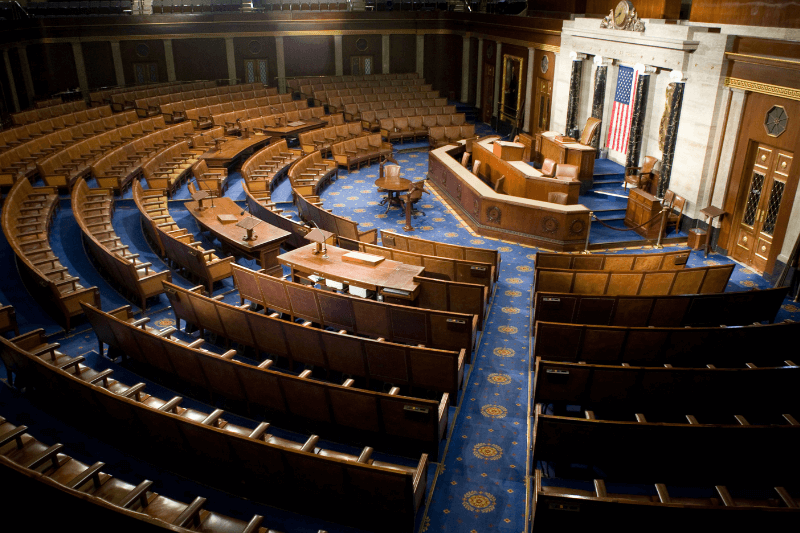
Legislative Chess: PLEWSA vs. FRRA in the Section 702 Saga
The Battle in Congress Over the Future of Section 702 Surveillance: An In-Depth Analysis
As the halls of the U.S. House of Representatives echo with debates and discussions, a consequential clash is unfolding over the future of America’s global spy program, particularly in the context of the reauthorization of Section 702 surveillance. Two prominent bills, each claiming to reform and rejuvenate a surveillance program grappling with “persistent and widespread” abuse, are navigating the legislative process, promising sweeping changes while also raising concerns about Americans‘ privacy and civil liberties.
The Landscape of Section 702 Surveillance
At the core of this legislative clash is Section 702, a surveillance program that allows the U.S. government to collect vast amounts of communication data, including phone calls, emails, and text messages, annually. Notably, a significant portion of this data pertains to American citizens, permanent residents, and individuals within the United States who neither stand accused nor are suspected of any criminal activity.
Both bills under consideration extend the lifespan of Section 702, but the devil lies in the details of the reforms they propose. The first bill, introduced by Representative Andy Biggs and aptly named the Protect Liberty and End Warrantless Surveillance Act (PLEWSA), takes a notable step towards safeguarding Americans’ privacy. It introduces a crucial requirement for the Federal Bureau of Investigation (FBI) to obtain warrants before accessing communications of Americans collected under Section 702.
On the flip side, the second bill, put forward by the House Intelligence Committee and named the FISA Reform and Reauthorization Act (FRRA), lacks a comparable protective provision. This crucial distinction sets the stage for a heated debate on the floor of the House.
Keep Reading
The PLEWSA: Closing Legal Loopholes
The PLEWSA, despite its somewhat unfortunate acronym, addresses a glaring legal loophole that has allowed law enforcement and intelligence agencies to circumvent the Fourth Amendment. It highlights the practice of these agencies paying U.S. companies for information that would otherwise require a warrant for disclosure. By requiring the FBI to obtain warrants in such scenarios, the PLEWSA aims to reinforce constitutional protections and curtail potential abuses.
Expanding the Scope: FRRA in the Section 702 Saga
Contrary to its name, the FRRA, as analyzed by legal experts, appears to introduce changes that could significantly expand the number of companies compelled to cooperate with wiretaps under Section 702. Legal experts, including Marc Zwillinger, caution that these changes could broaden the scope to include diverse businesses like data centers, colocation providers, business landlords, shared workspaces, and even hotels where guests connect to the internet.
Behind the Scenes: Political Maneuvering
Behind the legislative scenes, a complex web of political maneuvering is in play. Officials from the Department of Justice (DOJ), Department of Defense, and the National Security Agency are reportedly making urgent calls to House lawmakers. Their aim: to oppose the PLEWSA and advance the FRRA. This coordinated effort, allegedly steered by White House advisers, adds an additional layer of intrigue to an already contentious legislative process.
The Balancing Act: Privacy vs. Security
As the bills approach a potential floor vote, the ideological tug-of-war between privacy and security intensifies. Critics of the PLEWSA, employing talking points circulated over the weekend, suggest “grave damage” to national security. In contrast, supporters of the FRRA have attributed the prevention of “another 9/11” to Section 702.
Representative Zoe Lofgren emphasizes the need for surveillance reform that curbs abuses and protects Americans’ civil liberties. The PLEWSA, with its emphasis on checks and balances, seeks to strike a balance between privacy concerns and the imperative of national security.
In the coming days, both the PLEWSA and the FRRA could face a floor vote, with the Queen-of-the-Hill rules potentially determining the outcome. The bill with the most support may ultimately shape the future trajectory of Section 702 surveillance, leaving a lasting impact on the delicate balance between surveillance powers and individual rights.




